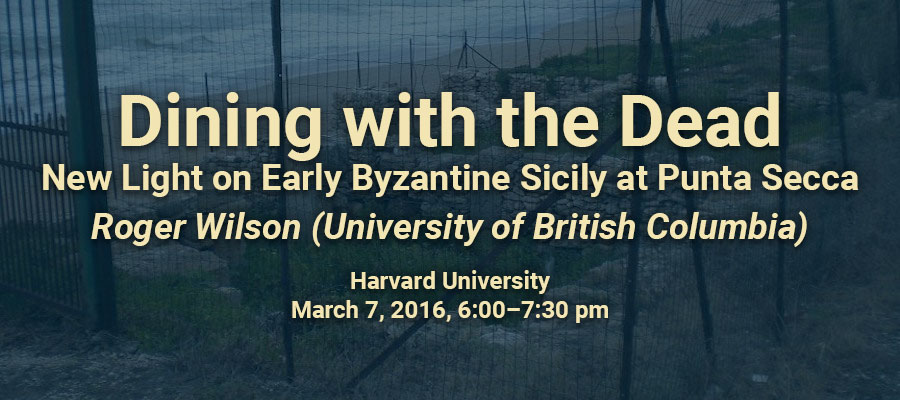Dining with the Dead: New Light on Early Byzantine Sicily at Punta Secca, lecture by Roger Wilson (University of British Columbia), Harvard University, March 7, 2016, 6:00–7:30 pm
Punta Secca (in Ragusa province) on the south coast of Sicily is a late Roman and early Byzantine village, partly excavated in the 1960s and 1970s and identified as the Kaukana of the ancient sources, where Belisarius set sail for the conquest of Africa in AD 533. This talk will describe a more recent excavation, focused on one building (a house), which examined in detail its building phases and the commercial contacts that its inhabitants enjoyed with other parts of Sicily—and indeed the wider Mediterranean world. Finds include the earliest securely dated example in Europe of a thimble, and what may arguably be the earliest depiction of a backgammon board. The biggest surprise was the discovery of a substantial tomb placed in what was probably the yard of the house in the second quarter of the seventh century AD, and of evidence for associated feasting in honor of the deceased. Who was inside the tomb, and why did that person deserve this level of respect? What evidence was there for feasts, and what was eaten? Was it a pagan or a Christian burial? And what was the tomb doing here, in a domestic setting, rather than in the village cemetery, or indeed, if the deceased was Christian, in or near the church? These and other intriguing questions will be addressed in this talk, and the discovery set in the context of what else is known about such practices in late Roman and early Byzantine funerary culture.
Roger Wilson is the Director of the Centre for the Study of Ancient Sicily at the University of British Columbia.
